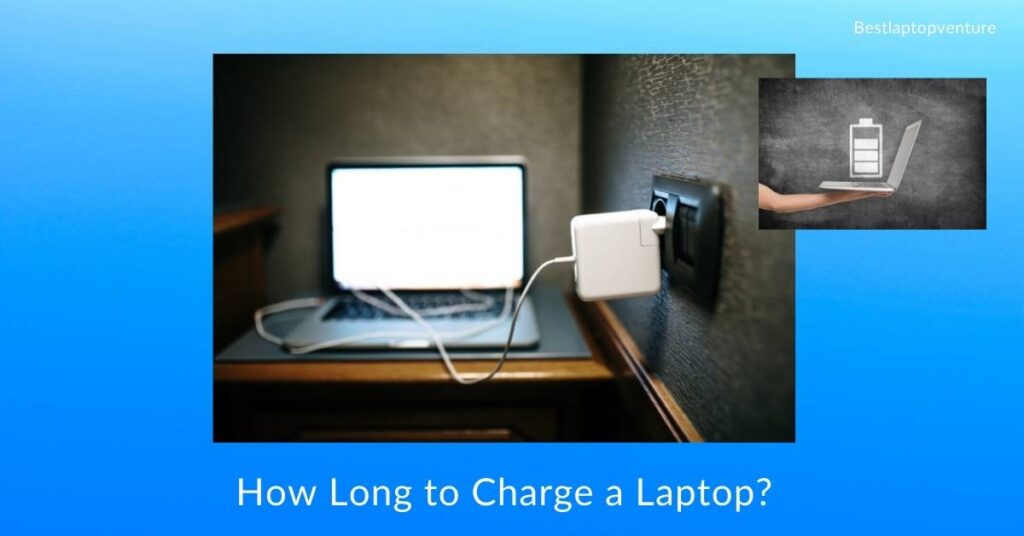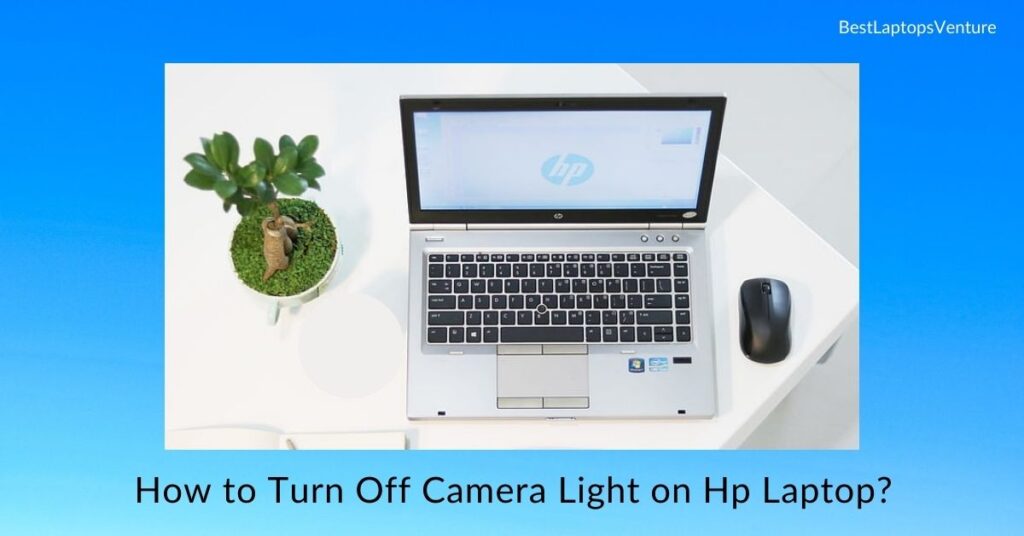
How long does it take to charge a laptop? That’s a question you can have if you need to charge your laptop quickly.
Laptop charging times can be affected by a variety of variables.
This might be the number of battery cells, whether was it entirely exhausted before plugging for a charge as well as if it was switched on or not.
When it’s switched off, it’s typical for your laptop to take roughly 1.5 hours to 2.5 hours to charge entirely.
Laptop batteries are a major point of differentiation between PCs and laptops. How Long Does It Take to Charge a Laptop?
It is determined by the type of laptop. A higher voltage means that some batteries need more refills than others. Batteries with a higher voltage usually need to be filled more often. Battery life can be improved by increasing the voltage, although this is not always a bad laptop.
The following are some general guidelines for charging your laptop battery. Remember these fundamental concepts.
Consult the documentation that came with your laptop or battery to get the most up-to-date information. If your documentation states anything else, you should follow their guidelines.

How long your laptop battery generally takes depends on:
- Your laptop’s battery type.
- Your computer’s kind of loader
- Whether you’re charging your notebook or not.
- Whether or not your computer is equipped with quick-loading technologies
The Impact Of The Adaptor On Charging:

The second aspect that determines the speed of the battery is the sort of connection your laptop has. A/C converters are commonly used to power laptops.
In some cases, though, a laptop charger’s power output can be increased, resulting in a faster charge.
USB-C is a high-speed connection that may load your battery in a speedier duration. Of course, you will need a laptop with a USB-C port to load through USB-C.
If you use your laptop while charging, it may take longer for your battery to charge. Using the laptop consumes power at the same time that it is being replenished.
As a result, getting a full charge may take longer.
How Long Does It Take to Charge a New Laptop Battery?
We recommend charging a laptop or notebook battery for at least 24 hours after acquiring a new one. A 24-hour charge guarantees that the battery is full and helps with the life expectancy of the battery.
Once eventually charged, if feasible, you should not discharge it. Lithium-ion batteries (the sort used on current laptop computers) are pressured and maybe weakened when totally emptied. It may often shorten the battery’s lifetime.
After the first charge, how long does the battery last?
Laptop batteries typically only last 2 to 4 years, equating to around 1,000 recharges throughout that time period. There are several elements, however, that determine the duration of a battery before it is eventually released:
- This is the raw material used to make batteries.
- How many laptops do you use?
- A typical laptop recharge costs somewhere in the neighborhood of $50.
For a palmtop battery, lithium is the best option; any other material will certainly result in shorter battery life.
The more your palmtop is used, the less battery it can last. As a general rule, a laptop battery only lasts about 1000 recharges before it has to be replaced.
Dead Laptop Battery Recharge: Is it a Real Possibility?
Place the battery in an airtight Ziploc or plastic bag.
Place the bag in your freezer for roughly 12 hours and then remove it from the freezer.
Reinstall the laptop battery and charge it to capacity.
When the battery is fully charged, disconnect it from the power source and let it discharge.
How Do I Reset My Laptop’s Battery?
Hold the power button for 30 seconds if your computer needs to boot from a connected battery. Reconnect the battery and let it charge on the laptop for an hour without electricity.
After this period of time, you should be able to start your computer with a more accurate battery reading because your battery has been reset.
How can I test the battery on my laptop?
- Power cord unplug.
- Shut off the computer.
- To restart your notebook, hit the power button.
- As soon as your palm top is turned on, press the Esc key.
- Here you can see the Start-Up menu.
- Should provide a diagnostic list and component tests
Is it harmful to keep a laptop plugged in if it is fully charged?
High-voltage charging can drastically shorten the life of your battery. Studies reveal that recharging a battery to merely 85 to 90 percent may boost its discharge cycle from 300 to even 1000 more charges.
If you charge your computer from 85 percent to 90 percent instead of 100 percent, it may extend your battery life from six months to one year. Furthermore, charging your battery only 70% to 75% may virtually quadruple the unloading cycle.
There are only so many reservoirs where power can be squeezed out of a battery, thus it takes a lot of energy to transfer charges around to reach the final 3% of your battery’s capacity.
It normally takes a toll on the lifetime of your battery, but not the charging level.
As a result of this, if you don’t charge your laptop to its full capacity, your battery life will be reduced, and your laptop will shut down more quickly.
If you are using your laptop regularly away from the charge station, this might be a huge problem for you.
Around the Use of a Power Bank
By employing a laptop battery bank, you could always sidestep this. You don’t even have to put your power bank into a wall outlet to recharge it; it’s a portable battery.
When you use your laptop on-site and recharge, you may connect to your power bank and restore the power bank to roughly 80 percent. It would also allow you to purchase a lower-voltage, less-priced power bank.
What can I do to make my battery last longer?
As previously said, using your computer at less than 100 percent capacity will help increase the life of your battery. However, environmental circumstances may also limit the lifetime of your battery.
Please don’t store your computer anyplace above 86°F as the high heat may hurt your battery and lessen its durability.
However, recharging is by far the most ideal strategy to enhance your battery life. You may achieve this by executing a few basic things while using your palm top to conserve battery life.
How can I preserve battery life?
You may adopt tiny habits to save your computer’s battery life so that you don’t have to recharge regularly. Keep your battery life through:
If you do not utilize demanding software, operate your laptop in low power settings (on Windows laptops this is called Power saver mode) (on Windows laptops this is called Power saver mode)
- Set your computer’s and display’s sleep modes.
- Turn lower the brightness of your screen (especially if you use your laptop inside) (mainly if you use your laptop inside)
- Perform each request in turn.
- Turn off Bluetooth and WiFi while not in use.
How Long Does a Laptop Battery Last on a Charger? & How can I maintain battery life? are connected therefore it will not go wrong.
If your laptop is plugged in all the time, is that a negative thing?
Laptops are the best computer devices to have as they are portable and useful for transporting to the job, home, and during trips.
Battery life is an important consideration when purchasing a laptop, but unfortunately, this is not always the case.
Proper care for the battery assures it will be utilized for longer hours.
Lithium-ion or nickel batteries are commonly seen in laptops.
Lithium-ion batteries make up the majority of current laptop batteries since they do not degrade over time when being recharged and discharged.
When you connect your laptop for charging and charge it to full capacity, it will automatically cease charging.
Leaving the laptop connected to the charger regularly is not in any way hazardous to the longevity of the battery however there are other issues you will need to consider, such as heat and how to prevent battery damage.
Heat
Leaving a laptop connected to charge for a long period or all the time does not influence the longevity of a battery, but high heat reduces a battery’s lifespan.
Excess heat is created largely by running too many apps concurrently or during gaming when the CPU is worked to capacity.
Unplug the charger if your laptop becomes overheated while connected to a power source, and then wait for it to cool down on its own. This helps avoid battery damage by heat.
How do avoid battery damage?
You may also avoid battery deterioration by doing a “deep cycle” at least once a month.
The deep cycle is where you charge a battery fully, then unplug from charge, then leave the laptop in hibernation.
Wait around 5 hours, then charge it to its maximum capacity in a quiet place.
Is It Necessary to Turn Off Your Laptop at Night?
Computer shutdown should be correctly done when one punches the Windows key and clicks on the power option followed by shutting down if one wishes to shut the laptop off altogether.
Other methods of shutting down the laptop, such as yanking the power cord or pushing the power button for an extended period of time, might damage its internal components.
The pace of laptop usage is the one that determines whether you should shut it off or not.
If you often use your laptop during the day, it’s ideally recommended you leave it turned on during the night, but if you rarely use it, shut it down.
Older laptops are always in danger of harm as every time you switch them on, there is often a burst of electricity for everything to spin up.
Frequent power-on/power-off cycles wear down the laptop’s components and reduce its useful life.
Leaving the laptop on, on the other hand, will result in excessive heat creation, which is a computer’s worst enemy.
Why would you want to turn off your laptop?
- To avoid power waste and reduce the electricity bill rather than when it’s left on.
- To reduce the number of restarts required while shutting down your laptop.
- In case you want to reduce fan noise as well as notification sounds.
Why Not Shut Down Your Laptop?
You don’t want to stay up all night waiting for the program to load, which takes time.
You may also keep the laptop on in case you have done a Windows update or you have an activity you intend to take place when you are gone, such as a virus check.
To gain remote access to your laptop, you must leave it powered on.

How long does it take for a laptop to charge fully?
As previously discussed above, the duration for a laptop to charge relies on a few things, such as the number of cells to be charged if the laptop is on or off.
To find out more, keep reading!
Battery cell number impacts the time it takes to charge to capacity. Six-cell batteries charge to capacity faster than nine-cell batteries. Another element that impacts the charging duration is the adapter type.
Some adapters are heavy-duty adaptors and will charge at a quicker pace.
Additionally, the state of a laptop’s battery affects how long it takes to recharge.
The charging duration might also be reduced or increased if the laptop drivers have an issue or if there is a problem with the charging circuit.
With all things in mind, the charging duration varies. Last but not least, the charging time is also determined by whether the laptop is on or off.
Charging while the laptop is off and entirely exhausted takes around 1.5 hours to 2 hours.
For a new laptop or laptop battery, it’s advisable to charge it first for 24 hours and avoid using it until it’s totally drained out of power.
Don’t be worried about overcharging since current laptops stop charging once the battery is charged to capacity and turned to utilize AC power.
The battery life of a new laptop can be extended by charging it in this manner.
The battery in your laptop might be damaged if it becomes too hot while you’re using it.
Leaving the battery charged to roughly 50% before storage is recommended if the battery won’t be used for an extended period of time.
For laptops where the battery can be plugged out, it’s advisable to remove the battery and keep it separately from the computer.
Additionally, if your laptop is charging and charging hot, unplug the power plug and let it cool down on its own, or remove the detachable battery and let it cool down on its own, to avoid damaging the battery cells.
Charging a laptop is faster than charging a PC since the laptop is still in use while it is charging.
How Do You Know When The Laptop Is Fully Charged?
To determine whether or not your laptop is completely charged, you can do one of two things.
The first way is when the computer is still on. Move the pointer to the bottom right of your display, where a battery icon is visible.
If you left-click on the battery icon, the power % will be shown. If not at 100 percent, it’s not yet completely charged.
The alternative approach is utilized when the laptop is shut down. Next to the power port, some light is generally visible.
When charging, the light on certain older laptops is amber; when it is completely charged, it becomes white.
On the other hand, modern laptops have a second charging mechanism that uses a white light that stays on until the laptop is fully charged.
However, there is no danger to the battery by leaving it plugged into power even after it’s completely charged.
When the battery starts to heat up, unplug it and let it cool for a bit to avoid the battery showing as completely charged when it isn’t. This can be charged by too much heat.
FAQs – How Long to Charge a Laptop?
How Dangerous Is It to Always Have Your Laptop Plugged In?
However, laptops are only as good as their batteries, and it is crucial to maintain your battery secure and charged for a long duration.
Your computer’s battery will not be damaged if you leave it plugged in all the time; but, other factors, such as heat, should be considered to prevent battery damage.
How do you charge a laptop the right way?
Every laptop is provided with a power cable. Attach the power cable with the power supply socket and attach the other end to the power socket on the laptop to recharge the laptop.
Using your laptop while the battery is charging is not a problem.
Is there a time limit on how long it takes a dead laptop to boot up again?
When the battery is extremely low or dead, the charge indicator becomes orange. Then roughly 45 minutes to 1 hour later, it gets dazzling blue. After 15 minutes, the color changes to a deep blue.
Almost all computers I owned or observed normally flash when the battery is ultimately charged, then shut off.
Conclusion of How Long to Charge a Laptop?
How Long Does It Take to Charge a Laptop? And how long does it take to charge? Depending on the computer and how you use it, you may expect a battery to last two to ten hours when fully charged. Afterward, you’ll have to reload the laptop by plugging it into a power outlet.
Long periods spent plugged into the laptop aren’t going to shorten its battery life, thanks to the lithium battery cells that are currently available.
What one should be aware of is excessive heat to the battery as well as utilizing the battery until it’s entirely exhausting since this kills the battery.
While your laptop is fully charged, it switches to using AC power, which prevents overcharging the battery and, unlike smartphones, does not consume the battery’s current when it is plugged in.
Instead, it utilizes the AC, especially when the battery is completely charged.
Read more: Does your gaming laptop need a high refresh rate screen










